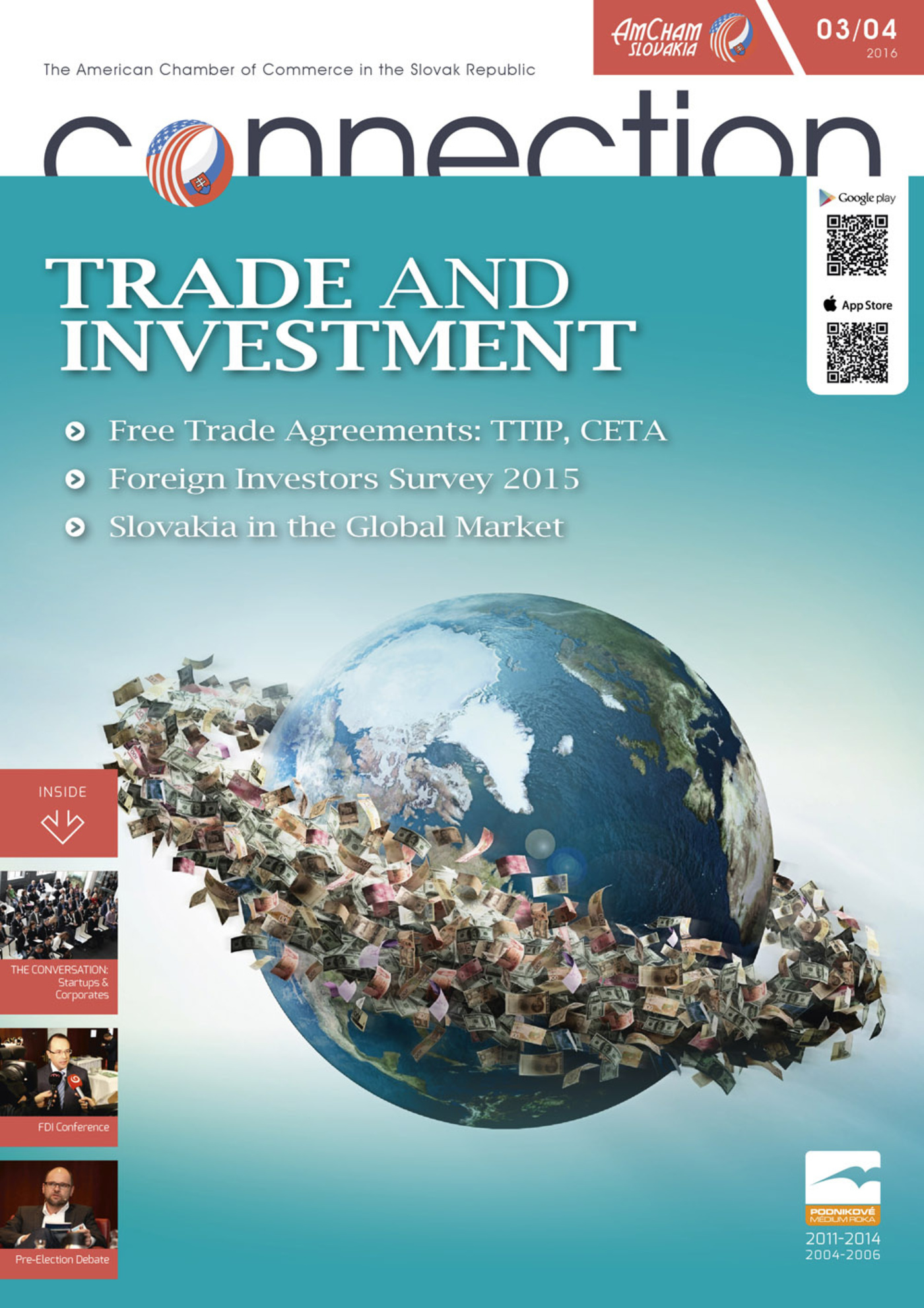In order to gain better understanding of the economic growth potential of particular countries, the KPMG macroeconomics team, in collaboration with external advisors, has developed the Variables for Sustained Growth (VSG) Index. The VSG Index aims to offer investors an insight into a country’s performance and how they compete when compared to peers and those considered best in class worldwide. The Index takes into account areas which can have a significant impact on a country’s future economic growth and wealth. The five main pillars assessed include macroeconomic stability, FDI and trade performance, transport infrastructure, education and the strength of public institutions.
Slovakia is in the top 15 worldwide for FDI and trade performance, but…
Overall, Slovakia ranked in 40th place out of 181 countries in the 2015 VSG Index. Among neighboring countries, Austria has reached the highest position – 19th place. The Czech Republic placed 26th, Poland placed 43rd and Hungary finished as the 48th country in the world in terms of economic growth potential. Slovakia scored the highest in the “openness to catch up in best practice” pillar. It covers indicators like FDI and trade performance where KPMG experts rated Slovakia at 8.7 points out of 10. This puts our country in the top 15 worldwide in this category.
But the Index has shown Slovakia’s weaker sides as well. Slovakia scored below average (4.7 out of 10) in infrastructure and is relatively weak (5.3 of 10) in the strength of public institutions category. The infrastructure pillar captures key areas associated with performance in the quality of transport (roads, rail, ports and air), technology readiness (% of mobile and internet users and availability of secure internet servers) as well as availability of services from financial institutions. The top performer worldwide in this pillar is the United Arab Emirates, which scored 9.4 points out of 10. The regional leader in infrastructure is Austria, which is a big step ahead of all other neighboring countries including Slovakia.
“It is interesting to see that out of five pillars covered by this study, Slovakia has scored better than Austria in three categories. But the difference in quality of infrastructure and strength of public institutions is so significant, that it has influenced the overall ranking. The 2015 VSG Index has again confirmed that Austria might be one of our benchmarks especially in terms of quality of transport infrastructure,” comments Ľuboš Vančo, Chairman of the Partner Board, KPMG in Slovakia.
The research shows that out of the five covered pillars, it is the strength of the institutions which has the greatest influence on productivity, with government effectiveness being particularly important. The strength of public institutions is calculated based on data on judicial independence, transparency of government policymaking, corruption, regulatory quality etc. Slovakia has recently undertaken certain steps to fight corruption. The implemented whistleblowing legislation is one of them. However, the general enforcement of obligations is lagging behind expectations. The world leader in the strength of public institutions is Finland which has scored 9.1 points out of ten in the latest VSG Index.
…quality of infrastructure could be crucial for growth
The ability to attract more FDI will also depend on the quality of essential infrastructure. We can see real benefits from investing in and upgrading the transport infrastructure as this has a compound effect of improving the openness to trade score. Certain investments can therefore deliver more “bang for their buck”. Better infrastructure lowers trade and travel costs, reducing barriers to trade and therefore raising openness to trade through higher trade volumes.
Technology readiness, another important driver of productivity covered by the infrastructure pillar, proves how a comparatively small group of countries have managed to leap far ahead, while a significant number of countries are far behind with limited internet access and only a basic telecom infrastructure. Countries like Ireland have benefited from a significant uplift thanks to sizeable progress in technology readiness and a strong rise in FDI stock, which has more than compensated for the deterioration in the macroeconomic environment.
Yael Selfin, Head of Macroeconomics at KPMG and author of the 2015 VSG Index report concludes: “Numerous factors are likely to influence productivity in each country, but with growth at the top of agenda, policy makers need to ensure they make investments which maximize the country’s economic growth potential.”
The areas for improvement have been identified, it is time to take concrete steps. So, where we are going to start the way to increasing Slovakia´s economic growth potential?
Rastislav Puchala, Director, State Aid & Košice office, KPMG Slovakia



Follow us